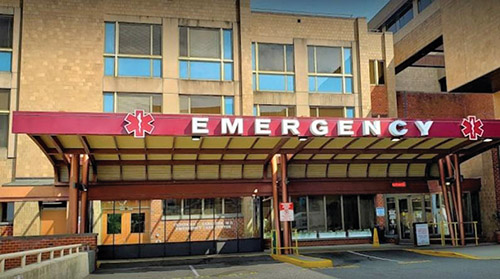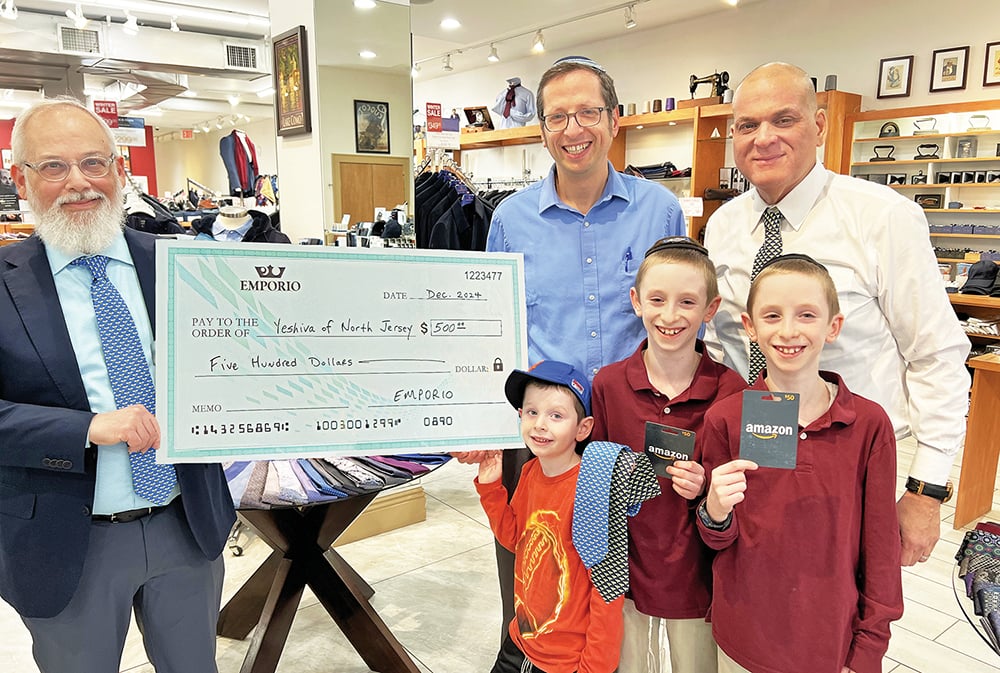
(Courtesy of St. Mary’s General Hospital) The emergency department at St. Mary’s General Hospital in Passaic has completed a two-day education program to learn the nuances of the Orthodox Jewish (“frum”) community as part of an overall program to accommodate this community.
George Matyjewicz, community liaison for the hospital, and Moshe Stareshefsky, senior EMT with Hatzolah of Passaic-Clifton, conducted these sessions, one day with the night staff and the next day with the day staff. The program, entitled “Understanding Judaism—The Professional’s Guide in a Hospital Environment,” was developed by Matyjewicz based on material prepared by the New Jersey Chaplain’s Association and other sources. “It is a comprehensive guide on what to expect in a hospital with frum patients,” said Matyjewicz. “The guide is tailored for each department to cover the areas that they may encounter. For example, human resources does not see patients, so their program is reduced to what to look for when hiring staff, whereas the ER sees all types of patients, so they learn it all.”
Matyjewicz started the program with a PowerPoint presentation, then turned the presentation over to Stareshefsky for real-world discussion of what to encounter with frum patients, as he has brought patients to St. Mary’s and knows most of the staff in the ER (Hatzolah brings 600+ patients a year to area hospitals). There was a lot of interaction between staff and Stareshefsky as they discussed some actual cases. In one case, a young child died, and the parents would not let staff touch the body. The role of the chevra kadisha was explained and any potential conflicts with policy or law were discussed.
Matyjewicz then continued with guidelines in the PowerPoint. “There were some examples in the presentation that caused more discussion,” said Matyjewicz. “For example, a woman is ready to deliver a baby at 3:00 a.m. on Shabbos, so her husband drives her to the hospital, parks outside the ER entrance and rushes inside where they take care of the wife. Now what? It is no longer an emergency, so the man cannot move his car, unless it is blocking the entrance and may put other patients’ lives in danger. While it was a shock to most, it also got them to understand that they need to be aware of the nuances of Orthodoxy and watch for simple signs and to take action. In this case to move the car for the patient. The message we are trying to instill is for staff to be alert to patients and to assist where needed—be aware of cultural sensitivity, as other cultures have their nuances.”
“Common things we take for granted can be strange to non-Jews,” said Matyjewicz. Like dress, prayer, tznius, medical procedures and life and death. It’s hard to understand that the body of a deceased patient should not be touched and that a group of volunteers will dress the body. Or that a mohel will circumcise the baby boy, not a doctor in the hospital.”
The session then covered Shabbos and Yom Tovim and what patients and visitors encounter in a hospital—like not signing that registration when admitted on Shabbos. Then, of course, there are the electronics in the room—the call button, the electronic bed controls, the lights switches etc.
“The session was very well received with a lot of questions,” said Matyjewicz. “We will continue educating other department staff so they can be prepared as they get patients. And everybody knows to call me or the rabbi if they have any questions. What I believe was most beneficial was that we aroused awareness in these professionals, so when they see that young lady standing outside the door on Shabbos, somebody can open the door so she can visit her mom without triggering electronics.”
The hospital has been making excellent progress in changes to the facilities to accommodate frum patients—like a Shabbos elevator and Shabbos path, Bikur Cholim Shabbos room, local kosher food and more. “We are also assembling members of an advisory board to guide us in this quest to serve the frum community,” said Matyjewicz. “We will report progress and discuss any potential areas of concern with this board. More information will be forthcoming.”
And in the next couple of months they will be doing a series of shiurim and education programs for the kehila. As one prominent rabbi in town said: “It will be nice to have a local hospital service our community needs.”
For more information, email George Matyjewicz at [email protected].













